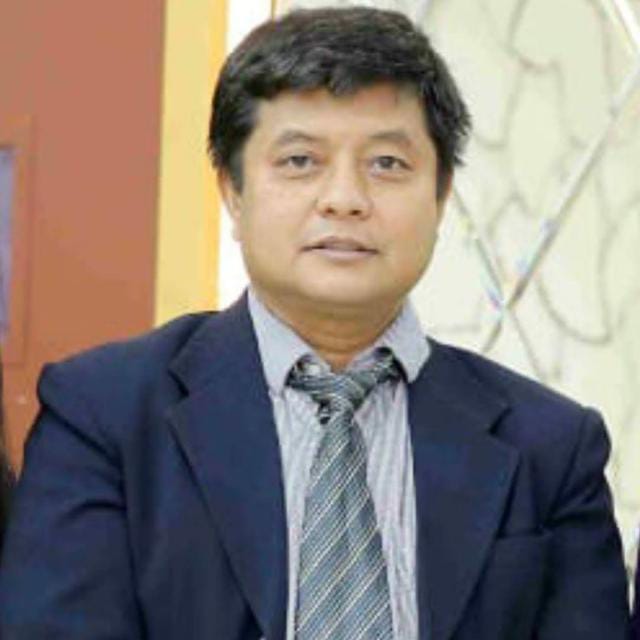Articles
Walking Our Sacred Land: Renewing Indigenous Catholic Identity Amid Crisis
Opinion | Articles | James Pochury | 20-Jan-2025

As excavators churn up the sacred soil of our ancestral lands, the stakes grow clearer: this is not just about losing territory but about the erasure of identity, culture, and faith. In the Northeast of India, where the earth carries the stories of our ancestors, every displaced village, mined hill, or desecrated grove is a loss far greater than material—it is spiritual.
The recent push for the Uniform Civil Code, the amended Forest Conservation Rules, and the relentless advance of mega-projects into our tribal areas present an existential challenge to our way of life. As someone who has spent years working with grassroots and international human rights organisations, I've witnessed how seemingly disconnected policies weave together to form a web that threatens to strangle our Indigenous Catholic communities.
For Indigenous Catholics, the challenges we face go beyond resource extraction and state policies. They pierce through to the heart of what it means to live as both Indigenous and Catholic, caught between external pressures and internalized theological frameworks that alienate us from our roots.
Beyond Imposed Sin: Reclaiming an Indigenous Moral Framework
The concept of sin in our communities has often been dictated by external missionaries, such as the American Baptist Church, whose hamartiology was shaped by the Great Awakening of the 18th century. This framework, divorced from Indigenous worldviews, painted traditional practices as pagan and sinful, and replaced them with a rigid moral code aligned with colonial ideologies.
Catholics, too, are not immune to this legacy. Our sacraments, rituals, and understanding of faith are often presented in ways that feel alien, distant, and ritualistic. For many, being Catholic becomes a practice of compliance rather than a lived spirituality deeply rooted in the land and community.
We must recognize that sin, morality, and salvation cannot be universally defined by imported frameworks. These concepts must be reimagined through Indigenous lenses, reflecting the sacred relationships between land, spirit, and community. Only then can our faith feel truly incarnate in our lives.
Faith, Land, and Resistance: A Trinity for Survival [Laudate Deum 15-18]
Pope Francis’ call for “integral ecology” resonates deeply with Indigenous wisdom, which has always viewed land, spirit, and community as indivisible. Yet, for this vision to take root, the Church in Northeast India must move beyond token acknowledgment to transformative action.
Our resistance to ecological destruction must flow from our faith. Khasi communities in Meghalaya halted uranium exploration not just with legal tools but with a deep sense of sacred responsibility for their land. Tangsa and Tutsa tribes in Arunachal Pradesh preserved their cultural identity through language reclamation, while communities along the Trans-Asian Highway defended sacred groves with customary laws. These stories show that survival is not just political but profoundly spiritual.
Toward a Radical Renewal
Theological Decolonization:
The Church must confront the colonial frameworks it has perpetuated. Education in seminaries and schools should critically examine the origins of imposed theological constructs and promote Indigenous understandings of faith and morality. The sacraments must be contextualized, reflecting Indigenous spirituality rather than alien traditions.
Reclaiming Sacred Spaces:
Our sacred groves, mountains, and rivers must become integral to the Church’s liturgy and praxis. These are not mere environmental concerns but spaces where God reveals Himself in the Indigenous context.
Integrating Customary Practices into Faith:
Liturgies and prayers must be enriched by Indigenous songs, dances, and rituals. This is not an act of accommodation but a recognition of the Gospel’s universality through diverse cultural expressions.Equipping Lay Leaders for Advocacy:
Lay leaders must understand that charity is not enough. They need to champion ecological and social justice as core expressions of their faith, standing against land grabs, exploitation, and cultural erasure.
A Synodal Network of Indigenous Churches:
Inspired by the Pan-Amazonian Ecclesial Network (REPAM), a similar initiative across Northeast India can unify tribes and communities. This network should amplify Indigenous voices in the Church and advocate for policy changes that protect land and rights.
Challenging the Status Quo
To the clergy and lay leaders who view tradition and charity as sufficient, I urge you to reflect on the Gospel’s call to justice. Jesus did not simply heal the sick and feed the hungry; He challenged oppressive systems and stood with the marginalized. How, then, can we remain silent as our people and lands are violated?
To those who resist Vatican II, Liberation Theology, and Pope Francis’ synodal vision: these are not disruptions but restorations. They remind us of a Church that walks with its people, rooted in their struggles and hopes.
A Call to Action
We must act—not as victims but as guardians of a sacred mission. By reclaiming our Indigenous Catholic identity, we offer the Church a gift: the wisdom of a people who know that faith is not just doctrine but relationship—with land, spirit, and one another.
Let this be our time to lead, not by forsaking our traditions but by weaving them into the fabric of the Gospel. Together, we can create a Church that is not just for Indigenous peoples but profoundly of Indigenous peoples.
For the excavators may scar the land, but they cannot uproot the spirit of a people who walk their sacred ground with pride and purpose.
References:
- Laudato Deum (LD): ¶11–12, ¶14, ¶16, ¶23, ¶28, ¶31, ¶34, ¶37, ¶39–42
- Final Document of Synodality on Synodality (FDSS): §§1.4, 1.5, 2.1.5, 2.3.4, 3.2.3, 4.2.1, 4.3, 5.4, 6.2.1
- Querida Amazonia (QA): ¶7, ¶26–27, ¶41–42, ¶45, ¶53, ¶66, ¶70, ¶73, ¶94, ¶108
_______________
(James Pochury is the convenor of the North East Catholic Research Forum. He is now based in Bangkok, Thailand, and works closely with Indigenous groups working on conservation of natural resources. Views expressed are personal)
Leave a comment
